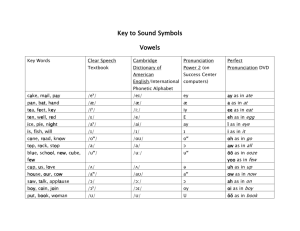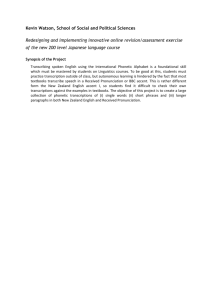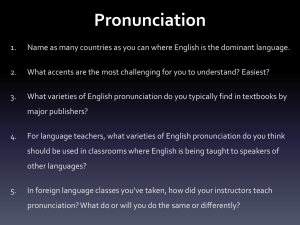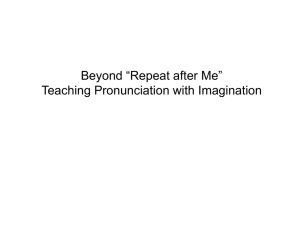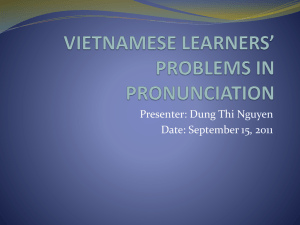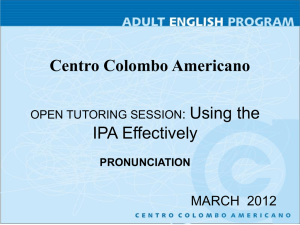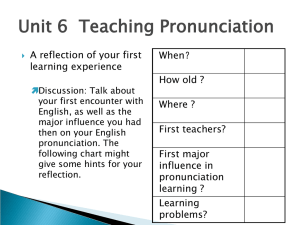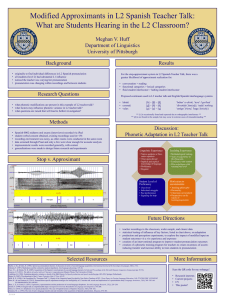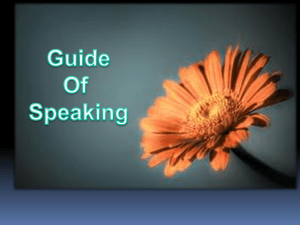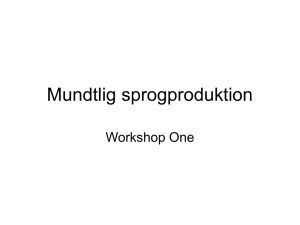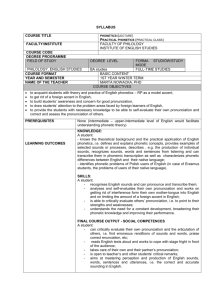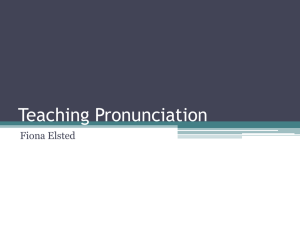TEACHING PRONUNCIATION
advertisement
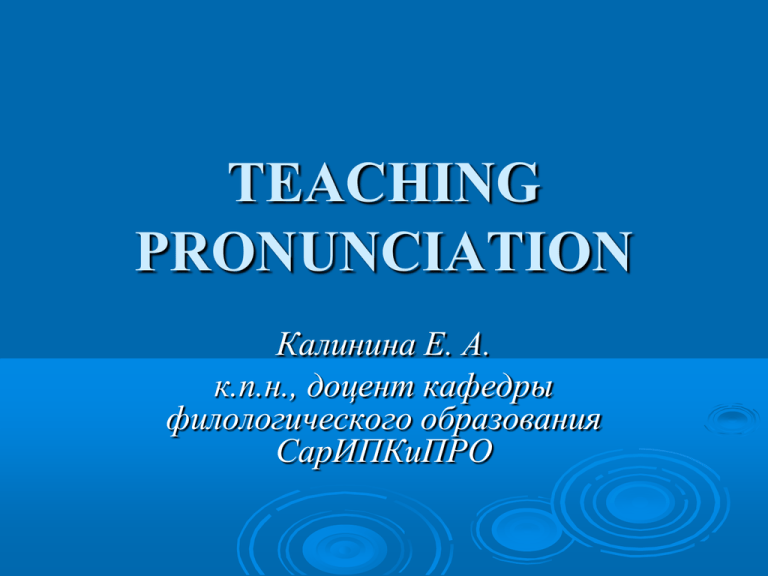
TEACHING PRONUNCIATION Калинина Е. А. к.п.н., доцент кафедры филологического образования СарИПКиПРО TRUE, FALSE, DEBATABLE 1. 2. 3. 4. 5. 6. Teaching grammar and communicative skills is more important than teaching pronunciation. Pronunciation should not be deliberately taught. Received pronunciation (UK) should be chosen as a model. A non-native speaker can’t serve as a model for teaching pronunciation. One of the reasons for pronunciation errors is that the learners transfer their native sounds to the second language. The learners should forget about the native language sounds to learn the target language pronunciation. TRUE, FALSE, DEBATABLE 7. Correct English speech sounds are more important than intonation. 8. In order to master the pronunciation it is necessary to sound like a native speaker. 9. The fastest way to master the target pronunciation is to have contacts with native speakers. THE IS… GOAL OF teaching pronunciation To develop in learners PHONETIC COMPETENCE which is the knowledge of the phonemes, syllable formation, word stress and intonation. This approach to teaching pronunciation is called approximating. PHONETIC COMPETENCE ELISIONS (ABSENCE OF SOUNDS) ASSIMILATION (ONE SOUND MERGES IN THE NEXT SOUND). IT IS CALLED “MODIFICATION OF PHONEMES IN CONNECTED SPEECH”. PRONUNCIATION STARTING POINTS: • • • • • MODEL NEW WORDS IN CONTEXT MODEL INTONATION USE DIALOGUES AND CHANTS USE SHADOW READING WORK WITH THE PHONEMIC CHART PRONUNCIATION GAMES • PHONEME BINGO • ANAGRAMS • CATEGORY WORDS CUISENAIRE RODS (“SILENT WAY” APPROACH) Caleb Gattegno • THEY CAN REPRESENT DIFFERENT SYLLABLES, PHONEMES, INTONATION PATTERNS. • THEY HELP TO FOCUS ON THE TOPIC Two types of knowledge Intuitive (language feeling) Analytic (knowledge of articulation) Techniques for teaching pronunciation Pronunciation drill (listen and imitate, tongue twisters, phonetic description, minimal pair drill) DRILLING: • CHAINING: BACK CHAIN …told him …Would’ve… …would’ve told him. …I would’ve told him. If I’d seen him… If I’d seen him, I would’ve told him. FRONT CHAIN- the sentence is drilled and built up from the start, gradually adding to its length. • OPEN PAIR DRILLING • SUBSTITUTION DRILLING A tutor who tooted the flute Tried to tutor two tutors to toot Said the two to the tutor Is it better to toot or to tutor two tutors to toot? Create your own tongue twister WHO? WHAT? WHERE? WHY? BECAUSE… Mary married a monkey in Moscow at midnight because she was mad. Creative exercises A phonetic task is incorporated in the creative communicative task. Three-phase framework: Pre-activity (isolating phonetic material, focusing on phonetic material, activating prior general knowledge, motivating the learners) While-activity (performing the task, doing drill, using phonetic means for communicative purposes) Post-activity (reflecting on the results, re-visiting phonetic material, further tasks for classroom or independent studies) HOW DO YOU TEACH PRONUNCIATION?
